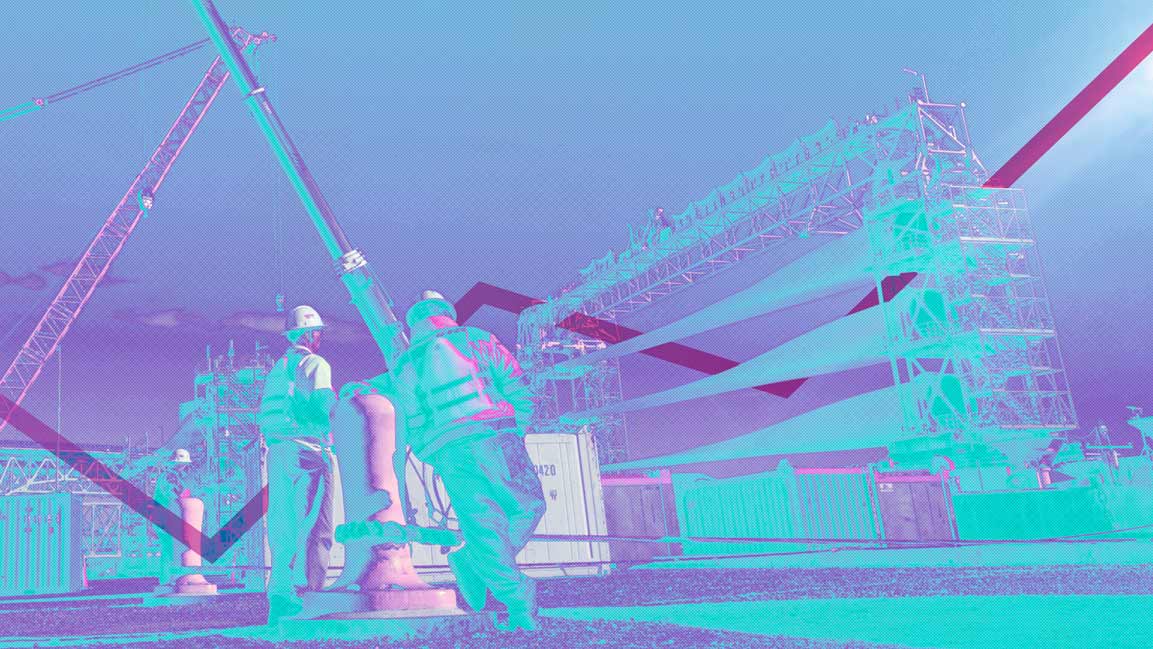- | 9:00 am
The once-hot startups in the Middle East are firing staff. What went wrong?
Layoffs at tech startups are surging to a level not seen recently, while the fundraising landscape is awash in venture capital money.

Contemplating the current conditions of some startups in the Middle East makes me think about this perfectly paradoxical passage from Charles Dickens’s masterpiece A Tale of Two Cities: “It was the best of times, it was the worst of times, it was the age of wisdom, it was the age of foolishness, it was the epoch of belief, it was the epoch of incredulity…”
If you know about the state of affairs in the recent months in the Middle East’s startup ecosystem, perhaps you’ll understand the metaphorical reference.
Layoffs at tech startups are surging to a level not seen recently, while the fundraising landscape, seemingly, is awash in venture capital money. The total funding secured by startups in the Middle East and North Africa (MENA) more than doubled to about $864 million in the first quarter of 2022, while the number of deals was up by 16%, according to Magnitt.
It’s ironic, though. While some tech startups are reporting investment deals, few have gone public and led the stock market with bust-out profits and expanded globally; the once-hot startups are downsizing and laying off their workforce. Even those startups seen as stable investments are faltering – mobility startup Swvl, the $12 billion quick commerce startup Getir and Coinbase-backed Rain are slashing their workforce. These are among the most valuable startups that have laid off staff. And tech layoffs continue.
Pointedly for a company like Swvl that raised millions of dollars to pump into aggressive expansion strategies, went public in April after a merger with Queen’s Gambit Growth Capital and acquired five companies in the past year, when news broke out that it is letting go of over 30% of its workforce, many in the industry were not surprised. It’s an economic downturn affecting the finances of the startups leading them to cut costs, and at the top of the list is retrenching employees.
As Swvl continues to scale and work towards profitability by cutting costs, Youssef Salem, CFO of Swvl, explains the decision to downsize, saying, “The primary reason is bringing the profitability forward from 2024 to 2023 due to rapidly deteriorating market conditions and macro environment, which makes access to capital more expensive.”
“As a result of bringing this forward, the B2C business will be focused only on certain segments and routes in Egypt and Pakistan. The rest will be scaled back, so many roles will be redundant. The profitable B2B and software-as-a-service business, which we have been expanding regionally and globally via new market launches and acquisitions, will continue to grow, and employees there will not be affected,” adds Salem
These are knee-jerk reactions over precautions and economic foresight measures taken to preempt market slowdowns, says Roberto Croci, Managing Director, Microsoft for Startups MEA. Interestingly, many of the recent layoffs have come from startups that just a year ago hit unicorn status. “The situation reminds me how building a startup is hard, and being a unicorn is even harder. Startups that were hitting growth last year may no longer be on the same trajectory, making growth into their current valuation a significant stretch,” says Croci.
There’s a deeper issue, though. VC investments are oxygen to fuel growth for startups, Croci says, but now it’s time to re-focus on more realistic outcomes rather than hyper-inflated valuations. “Value should be real and not based on hypothetical hyper-growth trajectories, while at the same time capital doesn’t necessarily ensure success.”
The surge in the valuations of tech startups owes to VC firms as they fiercely compete to turn a profit after an initial public offering.
Among the best-funded in the region, Swvl raised an additional $21.5 million in private investment in a public equity deal in February as part of its proposed business combination with Queen’s Gambit, ahead of its listing on the Nasdaq exchange. But things changed in a couple of months.
Also, many startups that raised newfound funds grew by wielding the capital to draw talent from big enterprises. Many unicorns become weighed down by high costs, largely due to mass recruiting. Rain, backed by Silicon Valley venture capital firm Kleiner Perkins and Coinbase Ventures, raised funds at a $500 million valuation in January, pledging to use the money to expand in the MEA and double its workforce to 800 this year. In a region that is heavily dependent on the foreign workforce, most of the tech talents laid off, including software engineers, are expatriates.
BALANCING GROWTH WITH CAPITAL EFFICIENCY
Last year, Getir, the pioneer of 10-minute grocery delivery, became a unicorn after closing its Series C funding round, securing $300 million of new investment, valuing the company at $2.6 billion. Soon it expanded to the UK.
But balancing business growth with capital efficiency is a struggle for most startups, especially when capital becomes more readily available. Often, startups raise more capital, spend it, and burn it on growth with little regard for efficiency. “Capital efficiency is a hallmark of a good startup. A generation of VCs has grown with no notion of capital efficiency. They have bloated companies with no prospect of ever breaking even,” says Kanwal Rekhi, Managing Director of Inventus Capital Partners invested in 65 US-based companies and 26 Indian companies. “Layoffs are unnecessary if a company has a good business model. These layoffs are an afterthought and are unlikely to have the desired effect.”
Experts say capital crunches happen, but the situation should encourage startup founders to build even more resilient businesses. “We need more leadership, where for every fundraising round, founders have an organic growth backup plan. Ambitious goals can be powerful motivators, but strong founders also keep their teams grounded in reality,” says Croci.
Globally, big and small tech companies are all seeing a downturn in their finances and valuations in the face of a wider market cooling. Getir’s rival in Europe, Gorillas, announced layoffs of 300 people. The Swedish buy now, pay later company Klarna confirmed it would cut 10% of its workforce. Big tech firms like Uber, Meta, and Paypal announced they’re freezing hiring. Netflix said it was laying off employees, and Amazon plans to lower its hiring goals for its retail department.
“With the rapid downfall in financial markets especially for technology stocks, both public and private, and amplified impact on currently unprofitable tech companies, startups worldwide want to accelerate their path to profitability,” says Salem. “It is an uncertain environment, and startups are preparing for the worst. The pressure is to turn profitable in the shortest time frame possible.”
DEMAND FOR TECH TALENT
The past few years have been boom times for startups. Record-breaking profits and growth, and eye-popping valuations for startups. Tech talents have largely benefited from that, enjoying fat compensation packages. Today, however, the employment landscape may appear a little more precarious. But as growing uncertainty looms on the stability of many startups’ business models, the tight-knit startup community is stepping up to look out for its own. Despite tech layoffs, many other employers are looking for tech talent. On Linkedin, hiring managers and recruiters have been reaching out to impacted employees with different job opportunities.
“Layoffs shouldn’t be precautions or corrections to mitigate past mistakes and over-hiring, and this is reflected by the fact that we can see other startups in the ecosystem offering help and support to people laid-off by more celebrated startups,” says Croci.
Swvl, Salem says, is paying the retrenched employees full severance pay, keeping their stock options in the company, and extending their work permits. “We are also supporting them to move to a new job through our recruitment agencies,” he adds.
Meanwhile, large-scale, government-led initiatives prioritize training and investment in technology to future-proof economies across. However, countries across the region struggle to find tech talent to achieve the goals laid out in their vision plans. A recent survey revealed that professionals with skill sets in data and analytics, cloud, and AI are currently in demand. “Layoffs are very hard on the employees’ morale, and in tough labor markets, it will be hard to hire when the need becomes evident,” says Rekhi.
The next 18-24 months will be filled with challenges for the tech startup ecosystem, but those focused on solving customers’ fundamental problems will continue to grow. “The past 24 months have taught leaders that tough markets drive survival instinct and innovation. Many have described the pandemic as one of the greatest periods of innovation across their firms. I hope that the period ahead is not as precarious as it seems and leaders remain focused on driving value and growth across their industries,” says Croci.






































